Blog
Welcome to Bob’s Blog! This is where Bob will post tips, tricks, and experiences he has with other racers. Check back often to read what Bob has been up to.
Books and information for racers
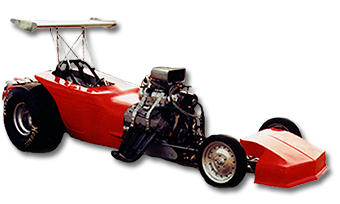
Welcome to Bob’s Blog! This is where Bob will post tips, tricks, and experiences he has with other racers. Check back often to read what Bob has been up to.
Bracket drag racing at Kingdon Airport, Lodi, California, USA 4-20-24
brought to you by Kingdon Drags.
(209) 649-1789
FOLLOWUP
A lot of fun at Kingdon Airport grudge racing drags; couple hundred cars with family & crew; Jeff Shirk, Sherry Norman, & track crew were great; making the outing the most fun; you could park up close & watch from your vehicle, trailer, or tent; great food provided as well; photos of typical racers who ran the event:

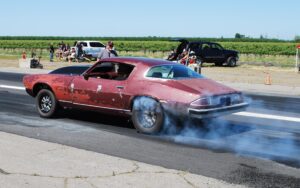
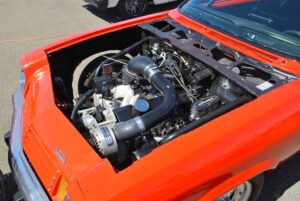
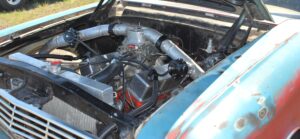
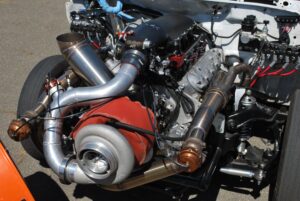
Our ProCalc mechanical fuel injection jetting calculator was transferred to our new site: mficalc.com.
All related services to our product were transferred as well, such as our fuel injection consulting service.
Site services review:
Show results:
Autorama announcement Sacramento, Ca, 2024:
https://rodshows.com/sacramento-autorama/
Hundreds of autos, sprintcars, drag cars, custom cars, motorcycles, boats, and many other vehicles will be on display. Motorsports supplier booths are throughout. As usual, many great food vendors are available to feed us throughout the show. Entertainment and awards are included in the weekend festivities.
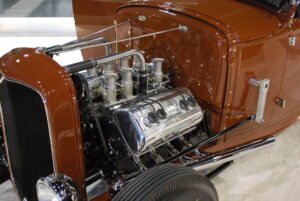
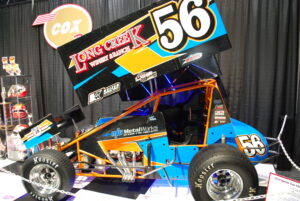
Vehicles from previous shows, such as these fuel injected examples, are throughout. We will be there. Let us know if you are displaying any vehicles. We’ll look you up.
Update from Friday, 4-4-24; paint jobs and designs are second to none!
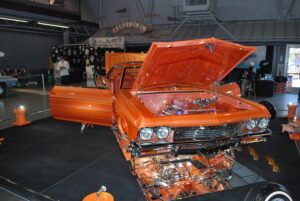
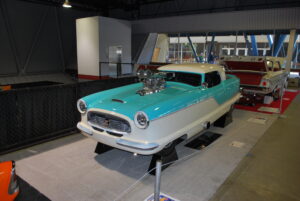
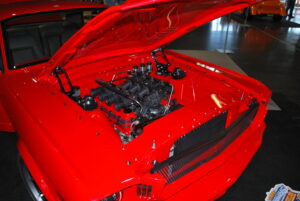
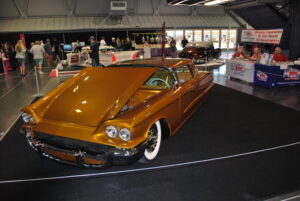
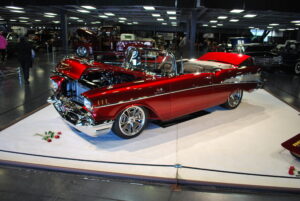
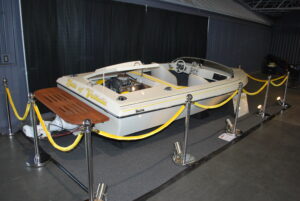
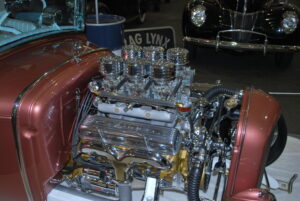
Normally aspirated (NA) racing engines are popular throughout the world, both in land and water motorsports. When the intake valve opens in this design, the piston changes direction from exhaust evacuation to intake inlet. As the piston goes down the cylinder, air pressure drops. Atmospheric pressure that is higher is outside of the engine. That higher pressure feeds air through the intake system into the cylinder.
FYI: Fuel is introduced in the intake system for an air to fuel ratio for subsequent combustion.
The amount of air that enters the cylinder is a function of the intake system that feeds the intake valve. Most NA engines have an intake port and manifold pathway that feeds the cylinder. For example, in a stack type fuel injection system, the intake pathway is normally a combination of segments. These are:
For example, a V-8 racing engine would have 8 of these pathways.
When the intake valve opens, the volume of air in the intake pathway port, throttle assembly, and ram tube fill the cylinder. Keep in mind that racing engines normally operate at high RPM. So the time to file the cylinder with 60+ events per second is quite short. The intake event is terminated by the cylinder going to the end of its stroke and the intake valve closing. If the volume of the intake pathway is smaller than the cylinder volume, then air is pulled from above the ram tube. It may be open air such as in a nostalgia dragster, or it may be from a plenum feed by an air cleaner such as in a sprint car. Here are some examples of a brief study from intake dimensions from various racing engines:
More information in our “5000 HP on Methanol” book.
We enjoyed entertainment of the FC Chaos world finals at Texas Motorplex, in October, 2022. The racing facilities are quite first class. Our thanks to Homer Doherty who met us at the entrance for the facility. Homer transported us (and many others) around the pits in his electric cart, where-ever we needed to go. This service was provided as a free courtesy to the spectators.
We met the FC Chaos race director, Chris Graves. Chris and his wife, Tera, put on quite a show of supercharged alcohol and nitro powered drag racers. (more…)
Roots blowers are popular in motorsports for making more power. They are made up of a simple blower case with two rotors inside. The rotors spin from an engine driven blower drive. This pumps extra air into the engine. With extra air and the appropriate extra fuel, extra power!
The blower case design was changed in later years to improve performance. One of these areas is the size of the blower case discharge opening.
Original Roots blowers ran on industrial engines. They were simple mass flow devices running at atmospheric pressure. In the mid 19th century, motorsports racers put them on racing engines. They pumped a lot more air into the engine causing boost. This became an easy way to make more power.
However, because they were originally designed to operate at atmospheric pressure, they were inefficient with boost. While they made more power, it was not that much more for the amount of increased air into the engine.
One of the design areas affecting efficiency is the blower case discharge opening. That is discussed in several of our publications. Here are two examples: (more…)
That time of the year again for Sacramento Autorama, California.
Or call for info: 877-763-7469
Previous shows included hundreds of professional custom vehicles, low riders, boats, great food, vendor booths, and entertainment.
Quite a few drag and land speed racing vehicles were displayed.
As usual, we were particularly interested in the racing mechanical fuel injection setups.
SHOW REVIEW
The Sac AutoRama Car show is a fantastic display of top custom and competition motorsports vehicles from all around.
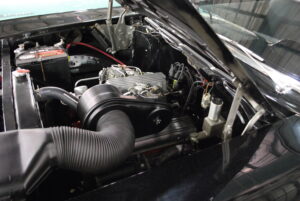
Mechanical fuel injection, such as this from a past AutoRama event, is one of many motorsports examples of rare and fascinating setups prevalent throughout the AutoRama show. This GM Rochester mechanical fuel injection, similar to the one that I first experienced decades ago, is typical of unique show vehicles on display. Viewing performance autos such as this are a great reminder of motorsports development throughout the years.
Considerations for converting from gas to methanol for motorsports:
Methanol is corrosive. Fuel systems need to be upgraded to corrosion inhibitive components not necessary in fuel systems for gas.
Methanol requires approximately twice the amount of fuel for the same power level as gas. Fuel pumps and jetting need to be upgraded for the higher volume.
Methanol has a higher heat of vaporization. That together with the increased volume can condense the inlet air, increasing the weight of air into the engine. That together with the proper air/fuel ratio will usually increase engine power. A power increase as high as 10% is reported by several racers who converted to methanol.
Methanol cooling throughout the intake system of a drag racing engine may eliminate the need for a cooling system that would otherwise be needed for gas.
Methanol is widely available throughout regions where racing is common.
Methanol absorbs moister. For long term storage, it should be kept in sealed metal containers. Methanol in plastic containers may get contaminated from humidity from long term storage. Plastic at the microscopic level is porous and will let moisture in.
Methanol is poisonous in all forms. It should be handled with protective clothing and eye protection.
More info in our book: 5000 Horsepower on Methanol.